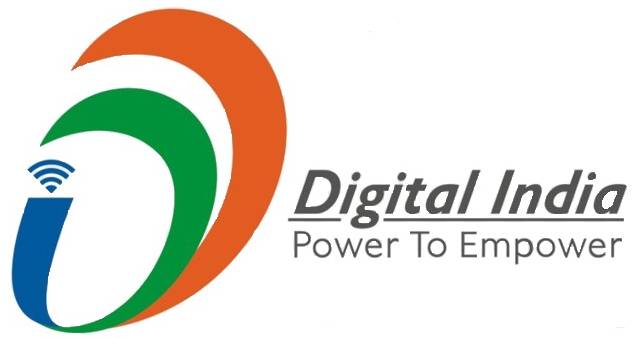Best Practice
1. EMOTIONAL INTELLIGENCE, A BOOSTER TOWARDS SUCCESS
Education is the corner stone of positive human development and moreover for the betterment of our entire world. Since we are highly passionate and concerned about today’s education we cannot neglect or keep aside the importance of human signals that’s the core of human survival. In such aspect we have to redesign the perspective of our educations as ‘educating the brain without educating the heart is not an education at all’.
What is Emotional Intelligence?
Emotional Intelligence refers to the ability to identify and manage one’s own emotions, as well as the emotions of others and deal effectively with the environment/ surrounding. An emotionally intelligent individual is both highly conscious of his or her own emotional states, even negativity, frustration, sadness or something more, and able to identify and manage them. These people are also especially tuned into the emotions of others experience. It’s easy to see how a sensitivity to emotional signals from within and from the social environment could make one a better friend, parent, leader, or romantic partner. Fortunately these skills can be honed.
SELF AWARENESS
It is the ability to recognize and understand personal moods and emotions and drives, as well as their effect on others. Self-awareness includes self-confidence, realistic self-assessment, and a self-deprecating sense of humour.
SELF-REGULATION
This is the ability to control one’s impulses, the ability to think before you speak/react, and the ability to express you appropriately.
INTERNAL MOTIVATION
This is having an interest in learning and self-improvement. It is having the strength to keep going when there are obstacles in life. It is setting goals and following through with them.
EMPATHY
This is the ability to understand other people’s emotions and reactions. Empathy can only be achieved if self-awareness is achieved. Emotional maturity in this category includes people having traits such as perception of others.
SOCIAL SKILLS
It enhances the proficiency in managing relationships and building networks, and an ability to find common ground and build rapport. Hallmarks of social skills include effectiveness in leading change, persuasiveness, and expertise building and leading teams.
EI @ EASE
The Ease curriculum of EI is designed in such a way to empower the emotional and social skills of our students to become excellent personalities in their personal life as well as excellent leaders in their society. Numerous researches finds that students with higher levels of emotional intelligence are able to better manage themselves and relate to others around them. This can help them develop improved self-motivation and more effective communication skills—essential skills to helping students become more confident learners.
Mode of Implementation
EMOTIONAL INTELLIGENCE CURRICULUM MAP
Curriculum map is consisted of various age appropriate competencies, learning objectives and learning outcomes. Each competency is developed from the major five components of emotional Intelligence by correlating with students need and areas for improvements. The Curriculum map will clearly defines what to teach and how to teach.
EI MENTOR @ EASE
EI mentor is a Post Graduate in Psychology, who coordinates and monitors all EI implementation processes. The EI Mentor gives accurate and prompt guidance and support to the teachers while implementing EI objectives in the classrooms.
EI COMPETNCY ACTIVITY MANUALS:
We have a well developed and detailed activity instruction manual for the mentor to do the activities smoothly in the classroom. Manual consists of activity procedural steps including list of requirements, introduction points, and discussion points.
EI CLASSROOM ACTIVITIES:
Exclusive instructional periods for EI to implement EI learning objectives from various competencies of Curriculum map. Class teacher delivers EI classes to the students with the support of EI mentor.
EI REAL LIFE ACTIVITIES:
Enabling children to familiarize with various real life situations and giving them an opportunity to practice their EI skills in the world around them.
LEADERSHIP CLUB ACTIVITIES: -
This club provides opportunities to the children to initiate various learning and welfare activities in the campus for identifying and developing their individual leadership skills.
EI PARENTING SESSIONS:
We organize sessions for parents on the Background EI Theory to educate and encourage them to be an excellent parent and also to ensure a positive and comfortable environment for children at home. Parent clusters are formed for different age groups for making more specific and effective outcomes.
2. PROJECT BASED LEARNING (PBL)
Every month an age appropriate legend and a theme, decided in accordance with United Nations sustainable development goals, is set in the monthly activities so that they learn a lot by doing seminars, debates, presentations and understand what it makes to become one and thus it becomes an inspiration for them. They are taught from young the need to comprehend and collaborate the learning that will enhance them to cope up the growth curve and prepare them for challenging roles in the future.
We give each child space for his /her creativity and innovation. We give them Project Based Learning so that students will be able to look at a problem from different perception and look for a solution which will prepare them to combat to the demands of the different industries /entrepreneurship that eventually children will need to perform in. We also give them value based learning to identify what is right and wrong and move accordingly. Soft skills development, leadership training, the art of self governance and crisis management are all given importance in our system of education.


